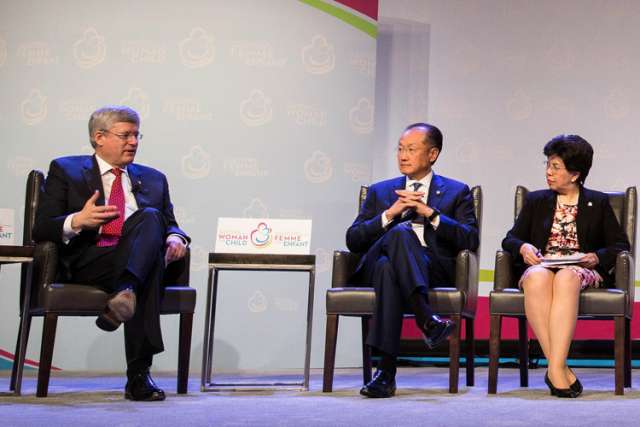"I have been known in my family as the eldest son…In fact, I should not have been," said Ban, sharing his personal story for the first time. "I should have been the third child. I had an elder sister and an elder brother according to my mother but unfortunately they died soon after their birth."
Today, too many people around the world still live the reality that what should be the most joyful day is often the saddest, he added.
"We cannot accept that it is normal," he said
Ban called on world leaders to follow Canada's example and make maternal and child health an international priority. On May 29, Prime Minister Stephen Harper announced that Canada was investing an additional $3.5 billion towards health initiatives for mothers and young children,.
Dr. Jim Yong Kim, president of the World Bank Group called universal health coverage "the progressive pathway that will save lives, increase economic growth and help millions of people lift themselves out of poverty."
"More than one billion people lack access to healthcare and about 100 million people fall into poverty every year from paying out of pocket costs for healthcare," said Kim.
As more countries move towards universal coverage, fewer mothers die in childbirth and more babies are born healthy, he said.
"Peru has nearly doubled its coverage from 37 to 65 per cent of the population and it's led to a significant reduction in both maternal and child mortality."
He added that when countries are generous, organizations like the World Bank have to make sure that investment goes as far as it can.
On the issue of accountability, Dr. Margaret Chan, director-general of the World Health Organization, said there's been a cultural change over the past three years with the word accountability now appearing "in every forum, every meeting, every document we see."
She addressed Harper in a panel by saying "you walk the talk" in terms of funding, and added that "we need more countries to come on board."
(Santilli is a freelance writer in Toronto.)


